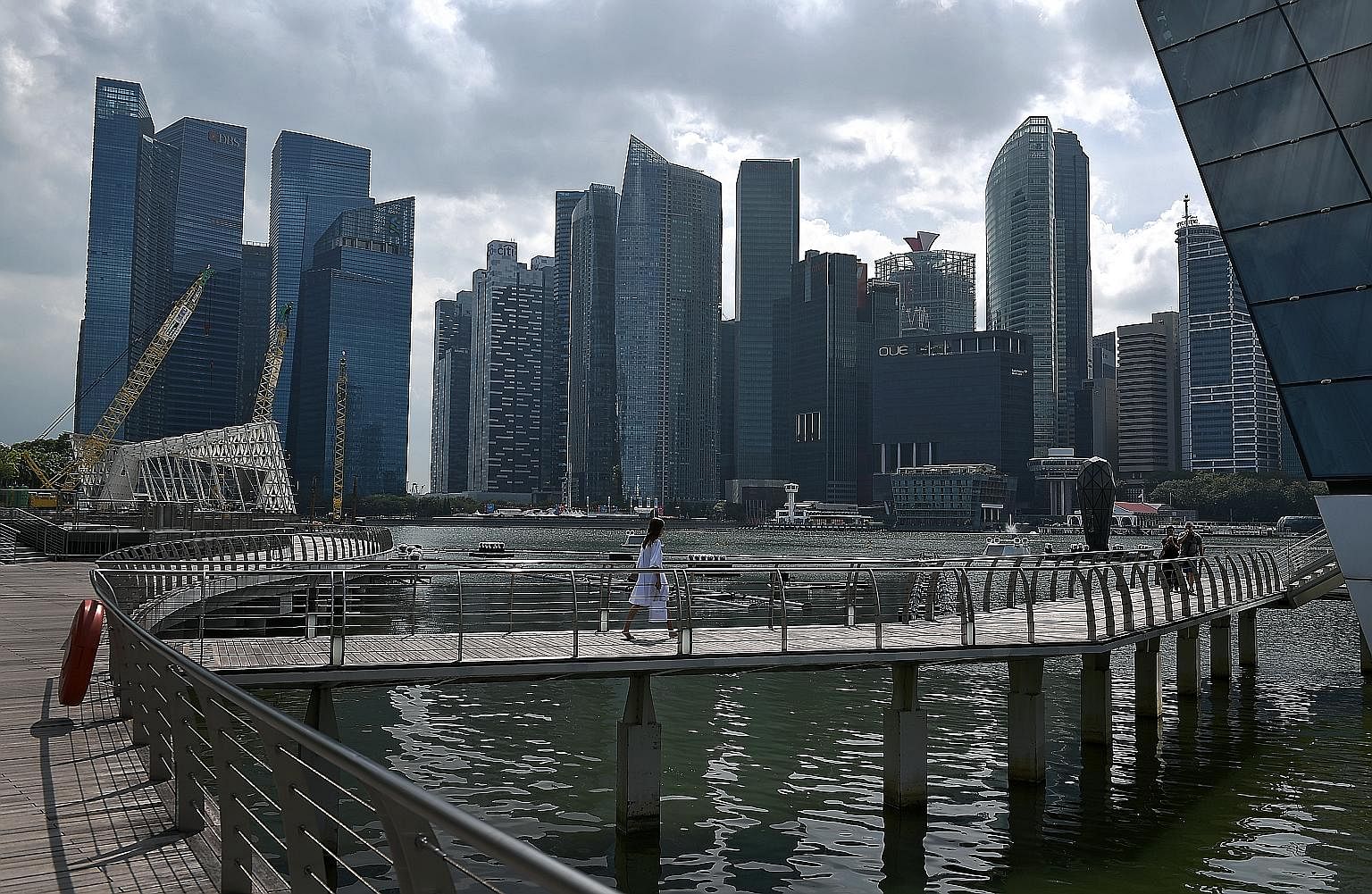Giving a preview of the thrust of his upcoming Budget at the annual Perspectives conference on Jan 22, Finance Minister Heng Swee Keat said: "Are we planning for the long haul? Are we planning for a better Singapore? That is the issue."
The Budget that Mr Heng delivered yesterday was faithful to these broad contours. In large part, it reads like a blueprint for the future. Moreover, many of the key measures that he announced will not take effect, or bear fruit, until years later.
One of them was the two percentage point hike in the goods and services tax from 7 per cent to 9 per cent, which is not going to happen until some time between 2021 and 2025. Probably the most anticipated measure of the Budget, the headline-making hike is (despite the surprisingly strong budgetary surplus this year) well founded, given the huge infrastructure and social spending needs that loom ahead.
The tax on e-commerce -which would help level the playing field as between local and foreign merchants and vendors - will also not come into force until 2020.
The economic transformation strategies announced in the Budget will also take effect over time, such as the measures to build "deep capabilities" in firms and workers, the planned partnerships between companies as well as trade associations to address common challenges, the big tax breaks for R&D, the funding for intellectual property (IP) commercialisation and the steps to increase economic engagement with Asian economies.
Ditto for the various measures to help seniors, such the expansion of community networks as well as health and social support services, which will benefit not just the current but also the next generation of elders.
Not for the first time, Mr Heng has used the Budget to prepare the ground for the transformation of Singapore's economic and social infrastructure and to boost its innovative capabilities.

Having done that, he also announced some measures that will have notable short-term effects.
One of them was the extension of the Wage Credit Scheme for three more years, which co-funds wage increases for Singaporean employees earning gross monthly wages of up to $4,000. This cost-reducing move will be welcomed by companies. Moreover, the wage increases, at least this year, will take place at a time of decent productivity growth , and will further help boost median incomes.
The enhanced rebate for corporate income tax, which will be extended to Year of Assessment 2019, will also be a welcome surprise (at least to companies making profits) - and is appropriate at a time when global corporate income tax rates, led by the United States, could be under downward pressure.
And despite some tighter restrictions on tax exemptions, start-ups and other small companies will enjoy effective tax rates of 4.3 per cent and 8.1 per cent respectively.
The carbon tax on emissions that will come into force next year and will apply to all sectors of the economy will hopefully spur companies to accelerate the adoption of energy-saving technologies, which will also make them more internationally competitive in a world that is increasingly emissions-averse .
Another notable measure which will have a short-term impact is the 1 percentage point hike in the top rate of Buyer's Stamp Duty for purchases of properties exceeding $1 million in value. This will come as an unpleasant surprise to property owners and potential buyers . There was not a strong case to hit the property market, which is not overheating. Moreover, the cooling measures are still in place and interest rates are headed up. Before he announced this measure, Mr Heng said he wants to "enhance progressivity", which suggests that the move was aimed more at reducing wealth inequality rather than raising revenue.
For all its rich content, the case can be made that there were a few measures that were missing from Mr Heng's Budget.
Probably the most important relates to foreign workers. Apart from the deferral of increases in foreign worker levies for the marine and process industries, which are hurting, there was no let-up in the generally tight policies on foreign workers which companies have long urged the government to relax.
This, despite the fact that Singapore's workforce will soon start to decline - and to which Mr Heng himself alluded during his preamble. He made a provision to permit more foreign trainers in key areas where skills are short, but companies need practitioners too.
In the area of controlling emissions, the measures did not extend to vehicular emissions. There were no additional incentives to encourage the adoption of electric or hybrid vehicles, nor to build out the vehicle charging infrastructure which will increasingly become a necessity.
Finally, although there should be no complaints about the 10 per cent hike in excise duties on tobacco products, the absence of a tax on sugared drinks is a disappointment. Given that Singapore has the second-highest incidence of diabetes in the developed world, as well as high levels of childhood obesity, there is a case to adopt fiscal measures to help combat these ills.
Hopefully, these will come in Mr Heng's next long-haul Budget.

